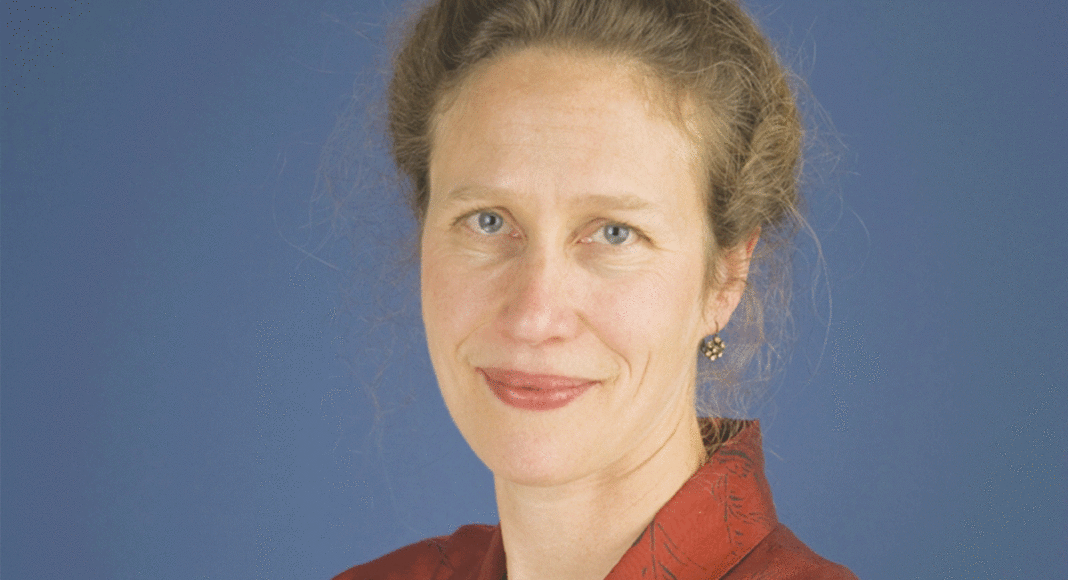Ever been called a birdbrain? According to Jennifer Ackerman, you should be so lucky.
In her wondrous new book, The Genius of Birds, she reminds us that there is more than one way to wire a clever mind. From the exacting beauty of their nests to the evidence of their empathy, navigational prowess, and ability to recognize faces, she lays out the surprisingly adaptable intelligence of birds, elevating it to its rightful place in the natural world. We talked recently about the delights and mysteries to be found in the avian brain.
How has your personal history influenced your interest in birds?
JENNIFER ACKERMAN: I started birdwatching with my dad when I was eight or nine years old. We had five girls in our family, so getting a little alone time with him was a big deal. He’d learned about birds in Boy Scout camp, so he was pretty good at identifying them by call and sight. I’ve held onto that love of birds all my life. When studies started to come out about their surprising cognitive abilities, I thought it sounded like a fascinating topic to delve into.
Birds are smarter than we give them credit for. What have we learned about the nature of their mental abilities?
The misrepresentation of the bird brain goes back to Ludwig Edinger in the 19th century. He suggested it was a primitive, reptilian structure, which turned out to be wrong, but it stymied research in the field for a very long time. Scientists finally began to sort out that birds may not have a neo-cortex like ours, but they have a structure that’s similar. Many species have brains that are large for their body size. Neurons in the brains of songbirds and corvids have a density akin to primates, but intelligence is not so much about brain size—it’s about the connections between neurons. When birds learn to vocalize, they use neural pathways similar to those we use to learn speech.
So birdsong is like language?
There are remarkable similarities between song learning in birds and speech learning in humans. Young songbirds have a period of vocalizing called subsong, which is like human baby babble. Some birds sing their songs in regional dialects and pass them down through generations. Some songbirds have speech defects. They stutter. Like humans, songbirds have a narrow window of time in which their brains are more easily wired to learn songs the way ours are more easily wired to learn language.
You write that birds having mapping minds. How does a hummingbird find his way to the same feeding ground each year?
The navigational abilities of birds so far exceed our own that they’re in a different domain. It’s believed that they use a sort of map and compass system, but it’s all cognitive. They tap into many different types of information, from sun and stars to magnetic fields, landscape features, wind, sound, smell, and more. All of it funnels into their brains and somehow guides them to their destination. Birds displaced from their natural migratory paths by hundreds or thousands of miles are able to beeline back to the right route within an hour or two.
Birds’ adaptability is often used as an explanation for their success, but many species are highly vulnerable right now. How can we help?
Birds that are adaptable are probably going to do all right, like blackbirds and sparrows. The ones that are highly specialized, particularly in mountain or tropical niches, are being squeezed out of their habitats. In terms of helping, being an ethical consumer is important, calling and writing your representatives about environmental issues can make a difference, but we can also do things in our own backyards. One of the great stories where I come from is the rise of the bluebird population. It happened because people put up bluebird boxes everywhere to protect them from predatory birds that were displacing their nesting sites. Growing native plants that birds love is another way to help, and you get the added joy of seeing them in your garden. I’ve even had an eastern screech owl roost in a tree right outside my kitchen window. That was pretty great.
Jennifer Ackerman will talk about and sign her new book at 7 p.m. on Wednesday, April 12 at Bookshop Santa Cruz, 1520 Pacific Ave., Santa Cruz, 423-0900. Free.













